| Srl | Item |
| 1 |
ID:
120970


|
|
|
| 2 |
ID:
139960
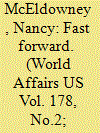

|
|
|
|
|
| Summary/Abstract |
When scanning the international scene today, it is tempting to see shadows of a dark past. Feudal powers annexing neighboring territories, maniacal cults perpetrating atrocities, pandemics threatening to wipe out entire societies—many of today’s top challenges have an eerie resemblance to upheavals of the medieval period. While there is indeed some validity to these parallels, they represent only a partial view of the extraordinarily complex realities unfolding in front of us. We face daunting challenges, to be sure, but we also face unprecedented opportunities for progress, as global poverty levels recede, access to education and medical care expand with the ranks of an international middle class, and technological advances put almost unlimited knowledge and influence into the hands of millions of individuals. Charting a way forward in the midst of this complexity—blunting threats to our security at home, seizing opportunities to advance our interests around the world, and working where possible to alleviate human suffering—is the task of American diplomacy. And if the world of tomorrow looks anything like what the trends of today suggest, effective diplomacy, and effective diplomats, will be more crucial to our national success than ever before.
|
|
|
|
|
|
|
|
|
|
|
|
|
|
|
|
| 3 |
ID:
100443
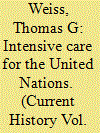

|
|
|
| 4 |
ID:
102344
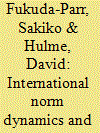

|
|
|
| 5 |
ID:
115951
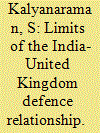

|
|
|
|
|
| Publication |
2013.
|
| Summary/Abstract |
The United Kingdom (UK) is keen on establishing a 'stronger, wider and deeper' relationship with India. It is 'determined to make' defence cooperation 'an essential part' of this relationship. London sees such a relationship with an India that will shape the twenty-first century as 'an essential pillar' in its 'broader strategy' to fashion a role for itself in Asia.
But how important is the UK for India's role in the emerging Asian landscape? Not very, it appears, from de rigueur statements about sharing 'the same vision for a renewed and enhanced partnership' and working together to address 'the challenges of global poverty and development, reform of global institutions, terrorism and climate change' as well as from appeals for a 'better appreciation of each other's core concerns including on the security environment' and particularly the challenge of terrorism.
|
|
|
|
|
|
|
|
|
|
|
|
|
|
|
|
| 6 |
ID:
115852


|
|
|
| 7 |
ID:
088349


|
|
|
|
|
| Publication |
2009.
|
| Summary/Abstract |
A large proportion of humankind today lives in avoidable poverty. This article examines whether affluent individuals and governments have moral duties to change this situation. It is maintained that an alternative to the familiar accounts of transdomestic distributive justice and personal ethics put forward by writers such as Peter Singer, John Rawls, and Thomas Pogge is required, since each of these accounts fails to reflect the full range of relevant considerations. A better account would give some weight to overall utility, the condition of the worst off, and individual responsibility. This approach provides robust support to global poverty alleviation.
|
|
|
|
|
|
|
|
|
|
|
|
|
|
|
|
| 8 |
ID:
140170
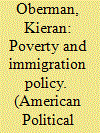

|
|
|
|
|
| Summary/Abstract |
What are the ethical implications of global poverty for immigration policy? This article finds substantial evidence that migration is effective at reducing poverty. There is every indication that the adoption of a fairly open immigration policy by rich countries, coupled with selective use of immigration restrictions in cases of deleterious brain drain, could be of significant assistance to people living in poor countries. Empirically there is nothing wrong with using immigration policy to address poverty. The reason we have to reject such an approach is not empirical but normative. People have human rights to stay in their home country and to migrate elsewhere. Counter poverty measures that require people to move or to stay are likely to violate these rights. Everyone should be free to migrate but no one should be forced to migrate. Using immigration policy to address global poverty, in place of alternatives, fails on both these counts.
|
|
|
|
|
|
|
|
|
|
|
|
|
|
|
|
| 9 |
ID:
121764


|
|
|
|
|
| Publication |
2013.
|
| Summary/Abstract |
This paper argues that a significant reframing of global poverty is likely to emerge in the next decade as world poverty becomes less about the transfer of aid and more about domestic distribution and thus domestic politics. This proposition is based on a discussion of the shift of much of global poverty towards middle-income countries. There are questions arising related to how countries are classified and to administrative capacities, as well as to domestic political economy, but it is argued that many of the world's extreme poor already live in countries where the total cost of ending extreme and even moderate poverty is not prohibitively high as a percentage of gdp. By 2020, even on fairly conservative estimates, most of world poverty may be in countries that do have the domestic financial resources to end at least extreme poverty; this could imply a reframing of global poverty.
|
|
|
|
|
|
|
|
|
|
|
|
|
|
|
|
| 10 |
ID:
086620
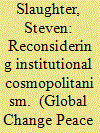

|
|
|
|
|
| Publication |
2009.
|
| Summary/Abstract |
Cosmopolitan scholarship has been at the forefront of efforts to consider political structures capable of realising justice in a more robust manner than prevailing global governance arrangements. In particular, the arguments of Thomas Pogge have contributed significantly to scholarly thinking about global poverty and his scheme of 'institutional cosmopolitanism' aspires to institutionalise human rights in the structures of global governance. This essay critiques the capacity of Pogge's cosmopolitan approach to productively guide political action in relation to global poverty by questioning whether global institutions generated by human rights are sufficient to address global poverty. The argument in this essay is that a viable guide to political action which alleviates global poverty must also take account of the potential utility of the state. This essays draws upon republican ideas to contend that cosmopolitanism needs to encompass a robust account of local institutions such as the state.
|
|
|
|
|
|
|
|
|
|
|
|
|
|
|
|
| 11 |
ID:
116900
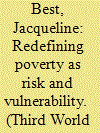

|
|
|
|
|
| Publication |
2013.
|
| Summary/Abstract |
The existence of global poverty poses a dilemma for liberal economic governance. Its persistence is an irritant to expert assertions that things will get better soon, making it necessary to develop new theories about the causes and nature of poverty and new strategies for managing and reducing it. This paper examines the most recent shift in how the World Bank and other organisations conceptualise and manage poverty, by beginning to view it through the lenses of social risk and vulnerability. The paper examines the evolution in how the Bank has historically sought to contend with the problem of poverty, and then considers the various expert debates and bureaucratic negotiations that shaped how this new conception of poverty as risk and vulnerability came to be institutionalised. Finally, I consider the implications of this shift for how the problem of poverty is governed, suggesting that it involves a much more dynamic ontology of poverty and requires the use of a more proactive set of techniques. While this more active intervention requires a more present and engaged state than was evident in the structural adjustment era, its role nonetheless remains constrained by the liberal preoccupation with limiting governmental power.
|
|
|
|
|
|
|
|
|
|
|
|
|
|
|
|
| 12 |
ID:
068941


|
|
|
| 13 |
ID:
145717


|
|
|